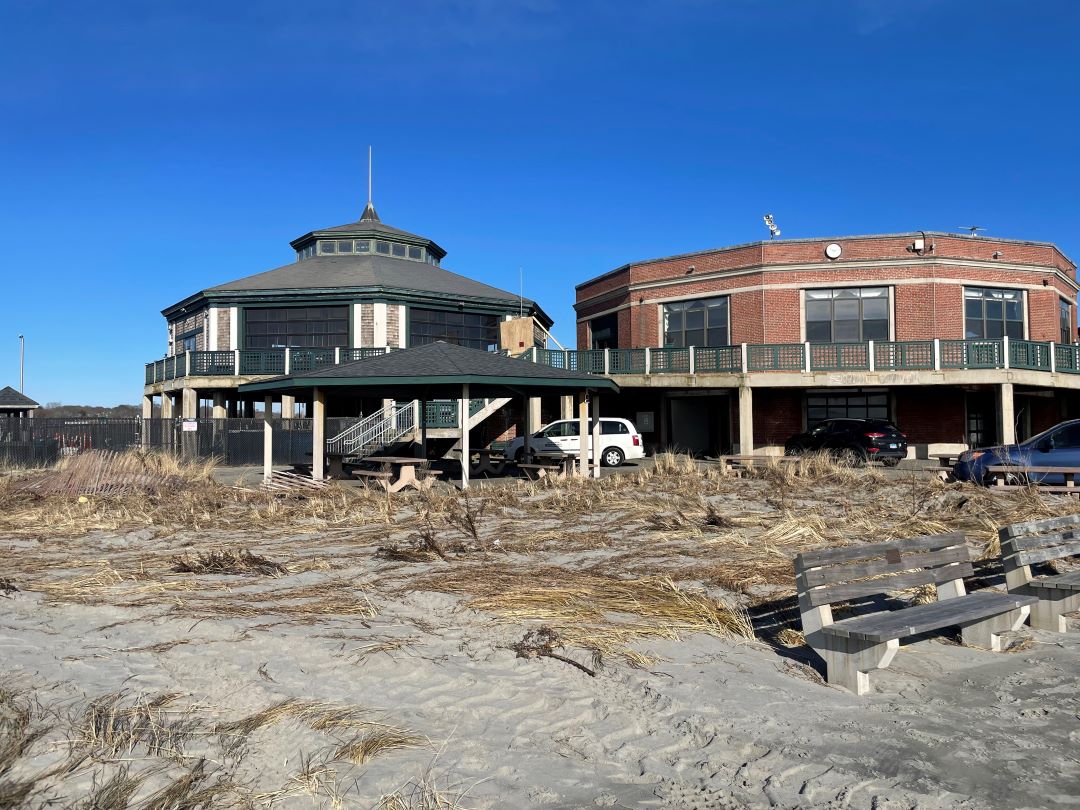Small Steps May Lead to Big Results in Addressing Climate Crisis
February 9, 2020
PAWTUCKET, R.I. — The need for radical action to address the climate crisis is undeniable, but can it happen in Rhode Island with a General Assembly and other institutions that are slow to embrace change?
In recent years, environmental groups have mounted well-coordinated legislative campaigns to decrease greenhouse-gas emissions and drive investment in the so-called “green economy.”
Despite sound research, overflow crowds at hearings, and a broad coalition of support from businesses, nonprofits, and academics, bills that call for significant action on climate change, such as a carbon tax and a Rhode Island version of the Green New Deal, never receive a vote and attract little interest from House and Senate leadership.
This year, bills for a Rhode Island Green New Deal and a carbon tax haven’t even been filed. Most environmental groups are instead putting their efforts into a bill that is more muted and, at least in the near term, less intrusive to consumers, the economy, and perhaps political opposition groups.
Legislation boosting the state’s carbon-reduction targets and making them mandatory instead of aspirational have also failed to gain traction. But this year, a bill dubbed “Act on Climate 2020” (H7399 and S2165) increases the goal of a 45 percent reduction in state emissions by 2035 to 50 percent and increases the 85 percent reduction target to “net-zero” by 2050.
The legislation doesn’t offer methods for achieving those goals, but it does make them enforceable through legal action. The courts, therefore, can compel the state to adopt plans for deep cuts in climate emissions. In fact, the Conservation Law Foundation (CLF) won a 2016 case in Massachusetts Supreme Judicial Court that forced the state to write regulations to achieve its carbon-reduction goals.
If passed and signed into law, Act on Climate 2020 would make Rhode Island the fourth state to adopt mandatory emissions targets, after Massachusetts, California, and Vermont.
Energy policy expert Jerry Elmer, a senior attorney for CLF, and Paul Roselli, president of the Burrillville Land Trust, outlined this struggle before an audience eager for local climate solutions.
At a Feb. 5 meeting hosted by Climate Action RI, Elmer noted that Act on Climate 2020 has its flaws but is a significant step forward relative to the lack of progress to address the climate crisis in Rhode Island and beyond. CLF produced a flyer touting the act’s importance.
Elmer touted the act’s enforceability of the targets and noted the support from environmental groups with large pools of backers such as the Environment Council of Rhode Island and the EnergizeRI Coalition, which draws expertise from Brown University.
Considering that the federal government is rolling back climate gains and environmental protections, the bill is strong, effective, and a desirable step, Elmer said, “which would put Rhode Island at the front of the entire country if it were enacted. It will be a very, very, very big lift.”
But he acknowledged the act’s imperfections. “If people tell you there are things this bill doesn’t do, they’re right.”
Climate activist and University of Rhode Island physicists professor Peter Nightingale has questioned the use of “net zero” as a target, because the term may allow the use of carbon offsets and other accounting techniques that enable emissions to persist, even as the scientific consensus argues that man-made carbon emissions should be stopped by 2050.
Nightingale noted that not all greenhouse gases are the same when it comes to climate impacts, especially methane, which is a more potent gas than carbon dioxide. Thus, he has argued, a 50 percent reduction in emissions by 2035 should consider the heat-trapping impacts of each gas rather than simply allowing the reduction of indiscriminate gases.
Elmer said the bill is the best that could be done under the circumstances and that future revisions of the act and the rule-making provisions will address inadequacies.
Elmer acknowledged the reluctance of House Speaker Nicholas Mattiello and other moderate Democrats to embrace environmental legislation and said passing this bill will be “very difficult.” But there is optimism because legislators, including members with leadership positions, are showing a heightened interest in climate bills, in part to the upsurge in grassroots and youth activism from activist groups such as the Sunrise Movement.
“It may not pass,” Elmer said. “It will be a difficult lift, but there is reason for cautious optimism.”
Roselli gained a deep understanding of Rhode Island’s power-plant application process fighting the Clear River Energy Center, a fossil-fuel facility proposed for the woods of Burrillville. He now serves on a state advisory board that will soon propose legislative changes to the Energy Facility Siting Board (EFSB) through the Energy Facilities Siting Act. Recommendations may include increasing the number of members on the three-person board, requiring compliance with state emission-reduction goals, and having applications reviewed by a science and technical advisory board.
Roselli explained how the written decision by the EFSB to deny the natural-gas/diesel power plant may have subtly prevented future fossil-fuel facilities from being built in Rhode Island.
The EFSB, he noted, explained that the proposed power plant would perpetuate the status quo of power generation and not advance the goals of the State Energy Plan that call for diversifying energy production.
Roselli described that reasoning by the EFBS as “money in the bank” when it comes to denying future fossil-fuel power plants.
“The EFBS has intentionally or unintentionally, or maybe somewhere in the middle, set Rhode Island on the path towards the complete elimination of fossil fuels for the production of electricity. You should be jumping up and down in your seats,” said Roselli, noting that the environmental community now has a strong argument to prevent emissions from new fossil-fuel power plants.
Categories
Join the Discussion
View CommentsRecent Comments
Leave a Reply
Your support keeps our reporters on the environmental beat.
Reader support is at the core of our nonprofit news model. Together, we can keep the environment in the headlines.
We use cookies to improve your experience and deliver personalized content. View Cookie Settings




I admire people like Paul and Jerry pushing RI forward, but the national (and global) political prospects are getting dimmer, with the GOP united and the resistance disunited and in disarray, the prospects of another Trump term and what it means for the courts, for the EPA, for public lands, for wildlife, for transportation policy, for income inequality, for democracy itself. That will overwhelm whatever progress RI can make. With species disappearing, glaciers melting, CO2 levels still rising, too many places on fire, and population growth still skyrocketing, I think we need to see some reason for global optimism if many of us are not just going to give it up and live it up while still possible.
i am jumping!